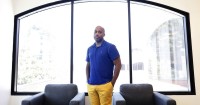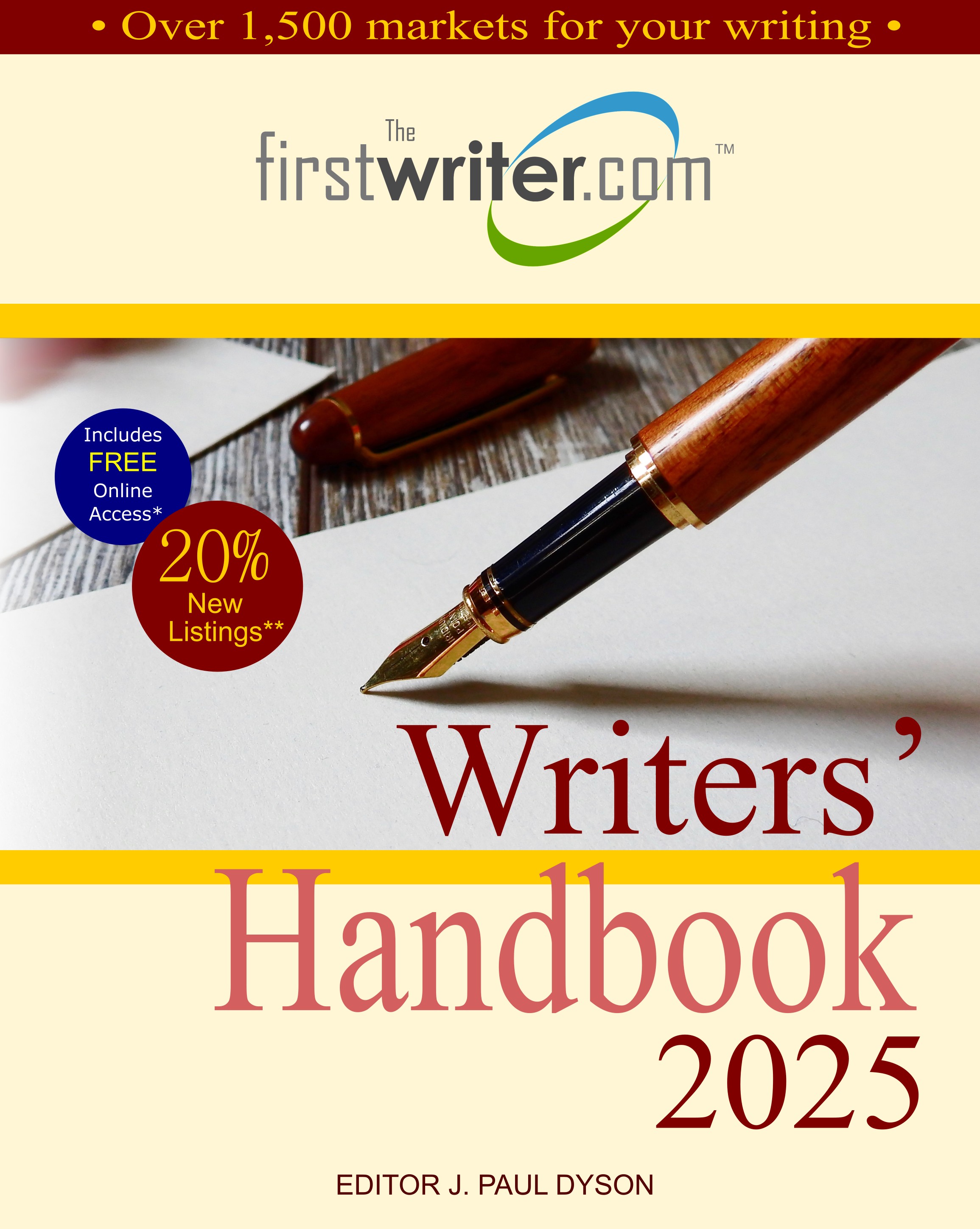
Writers' Newsletter
Issue #196
July 2019
|
Fall in Love with Criticism

By G. Miki Hayden
Instructor at Writer's Digest University online and private writing coach
firstwriter.com – Wednesday June 26, 2019
Let’s raise our glasses to our true friends who can tell us that our participles are dangling and that our story is too soft. And let’s try to be the type of writers who are brave enough to accept and utilize criticism!–Nancy French
We humans are highly socialized to be tactful in what we say to others, and in turn, we expect others to consider our feelings when they speak. Of course this isn’t the type of world where such tiptoeing around always goes on, and sometimes we receive feedback that crushes our sensitivities. Moreover, writing/publishing isn’t a business in which people will respect our egos, and thank goodness, because if we want to improve as writers and submit until we sell, we have to be ready to listen to the advice we’re very unkindly (we think) being given.
I recently had a student turn all psycho on me because I wasn’t as delicate with my feedback as she had hoped. I honestly don’t know why she reacted the way she did since I didn’t think what I said was so terrible. At any rate, we soon made up as she actually did value the feedback I gave her—but she put limits on what I might say. Does that sound wise? Well, it’s not. I, myself, have spent years learning one thing or another, and one piece of wisdom I picked up is that if you want help from someone, you don’t block their delivery of it. You say thank you when they excoriate you, because a real teacher means to help and not to harm and has the knowledge you want to acquire.
Biting your tongue and accepting what’s said is the proper path, even when the teacher exaggerates or might (probably not) in this instance be wrong.
When the agent or editor returns a carefully thought-out page of suggestions, you don’t want to hiss like an angry feline and claw back. Consider yourself on the edge of opportunity and say, “Thank you. I’ll mull over your ideas.” And that’s what you say even if you never in a million years would do business with your idiot critiquer after that. Not simply because the person could be right and after you calm down, you might concede a few points, but also because this is a small, small business world, and reacting like a maniac will earn you a reputation you don’t want to carry around for the next 20 years.
Critique Partner, Beta Reader
Now does this extend to working with a critique partner? Good question, and the answer is sort of.
Some people like to work with a critique partner instead of paying for a class. Understandable. But do parners always have a depth of understanding as to what they’re looking at? Have they had years of reading and evaluating writing? Maybe not, but they may have genuine insights and can certainly be accessible (most of the time). However, that doesn’t mean you need to work with someone who seems abusive.
Again, screaming at the other person isn’t the answer, but if the feedback appears to be more punative than constructive time after time, maybe bowing out would be the best solution to the relationship. Also, the moment to leave may have come if you’re giving more in terms of time and thought than you’re receiving. You’ve broken up with other folks more than once in your life and probably have a white lie or two at hand to fit the occasion. “I’ve decided to…wash my hair. …go to Hawaii for the next six months…” And then you experience a wonderful emotional release as if you’ve just been freed from a maximum security cell.
Do you feel guilty? Did you do the wrong thing? Well, you can generally pick up another critique partner in a Facebook group who won’t be so…mean.
Similarly, a lot of authors like to use beta readers for their reaction to a novel or some piece of work. I sometimes recommend them to a student myself. Just the other day when I felt clueless as to what the student was going on about in his writing, I suggested he check with some beta readers and not let through his fight scenes until two readers gave him a thumbs up. “Keep rewriting and asking different people to read until two in a row say they understand. Of course they could be mistake or lying,” I said. I inserted a “I’m kidding” emoticon to lighten the mood.
But if you ask for a beta reading, be polite and say thank you and give some thoughtful response to their evaluation. The last time I read for a certain author, I told her that her (already edited) novel had a lot of errors. She neither said thanks nor did she express more than minimal concern. Do you think I would ever read for her again? Well, I guess her reaction let me off the hook.
So not only don’t complain about the criticism you receive, but always include the words, “Thanks for the feedback.” That’s not just a decent way to react but good practice for dealing with the all-important people in your publishing life, your agents and editors.
Whether you like what they have to say or not, do consider what everyone suggests. Don’t be stuck on your own point of view—nor immediately buy into what is being told you. Contemplate all advice and let it simmer until you make up your mind. Be judicious, not reactive. You don’t really know if you’re correct about your writing—or just frozen in a pattern that won’t take you where you want to go.
Practice listening to what others have to say. Slowly but surely, become aware of your writing limitations, take a little wise advice, and widen your scope while enlarging your chances of being published.
About the Author
G. Miki Hayden is a short story Edgar winner. She teaches a mystery writing and a thriller writing and other writing classes at Writer's Digest online university. The third edition of her Writing the Mystery is available through Amazon and other good bookshops. She is also the author of The Naked Writer, a comprehensive, easy-to-read style and composition guide for all levels of writers.
Miki's most recent novel out is Respiration, the third book in her Rebirth Series. The New York Times gave her Pacific Empire a rave and listed it on that year's Summer Reading List. Miki is a short story Edgar winner for "The Maids," about the poisoning of French slave holders in Haiti.
"Holder, Oklahoma Senior Police Officer Aaron Clement is out for justice above all, even if he irritates the local hierarchy. Hayden in Dry Bones gives us nothing-barred investigation and plenty of nitty-gritty police procedure—which makes for a real page turner." — Marianna Ramondetta, author of The Barber from Palermo
|
|
|
|
|
|
|
|
International Copyright RegistrationRegister your copyright online for instant copyright protection in more than 160 different countries worldwide. |
Tips From Publishers: How Authors Can Improve Their Chances Of Getting Published

By Hollie Jones
Freelance Blogger
firstwriter.com – Wednesday July 17, 2019
What are the odds of an author getting a book published? According to literary agent Chip MacGregor, the chances could be as low as 0.0065%. If you want to be one of the few writers who are able to make a book and see it on the shelves, you have to get it in front of publishers and give them something they can work with. From finding the right niche to getting an agent, here’s what you can do to improve your chances of getting published.
|
|
|
|
|
|
|
|
Writers' Handbook 2025 - Out Now!
|
News |
Some of this month's news for writers from around the web.
Audible's Captions Program Stirs Fears, Frustration Among Publishers

publishersweekly.com – Saturday July 20, 2019
“Outrageous” and “copyright infringement” were the first two (unsolicited) emails PW received from independent publishers when word of Audible’s new program to run text along side its audiobooks began to spread. The program, called Captions, which requires the company to transcribe audio to text, was highlighted in a story in USA Today with a headline touting that Audible is looking to let customers “ ‘read’ an audiobook while [they] listen.” While the company disputes that description, saying Captions is not at all akin to the act of reading, publishers, literary agents, and organizations representing authors are skeptical.
While Audible said in a statement that Captions “does not replicate or replace the print or eBook reading experience,” publishers are unconvinced. “There are real copyright issues here and authors, publishers, and agents should review and clarify their positions,” said Dominique Raccah, CEO of Sourcebooks. “It seems unlikely that Audible was granted these rights.”
WGA’s fight with agents enters Act 2, but there’s no end in sight

latimes.com – Friday July 19, 2019
Like many of his peers, writer Rasheed Newson, a co-executive producer on the Showtime drama “The Chi,” was supportive of his union’s efforts to rein in some of the aggressive practices of talent agencies.
But three months after the Writers Guild of America told members to fire their agents, Newson is growing frustrated with the lack of progress in resolving a dispute that has consumed Hollywood.
U.S. Publishers Report Nearly $1 Billion in Sales as Strong Industry Growth Continues
benzinga.com – Wednesday July 17, 2019
NEW YORK, July 17, 2019 /PRNewswire-PRWeb/ -- The Audio Publishers Association released the results from their annual sales survey, conducted by independent research firm Management Practice Inc., which revealed that the strong growth the audiobook industry has seen in recent years continues. Based on information from responding publishers, U.S. audiobook sales in 2018 totaled $940 million, up 24.5% from the previous year, with a corresponding 27.3% increase in units. This continues the seven-year trend of double-digit revenue growth in audiobooks year over year.
| Click here for the rest of this month's news > |
Listings |
A selection of the new listings added to firstwriter.com this month.
New Literary Agency Listing
firstwriter.com – Wednesday July 3, 2019
Handles: Fiction; Nonfiction
Markets: Adult; Children's; Youth
Treatments: Commercial; Literary
Handles literary and commercial fiction, crime fiction, powerful and quirky nonfiction, teen and childrenâs books. Send query by post with one-page synopsis, first 20 pages, and email address for response. See website for full guidelines.
|
|
|
|
|
|
|
|
New Publisher Listing
firstwriter.com – Friday July 19, 2019
Publishes: Fiction; Nonfiction; Poetry;
Areas include: Short Stories;
Markets: Adult
Publishes novels, textbooks, poetry, short stories, photo essays, graphic novels, short-form personal essays and long-form nonfiction work. Query via form on website.
|
|
|
|
|
|
|
|
New Magazine Listing
firstwriter.com – Thursday July 18, 2019
Publishes: Fiction; Poetry;
Areas include: Short Stories;
Markets: Adult;
Preferred styles: Literary
Punk-influenced broadsheet journal based in Cape Cod and Pittsburgh. Publishes material both in print and online. Send one or two unpublished stories or up to five unpublished poems, by email. See website for full guidelines and separate email address for poetry submissions.
|
|
|
|
|
|
|
|
| Click here for more of this month's new listings > |
Articles |
Some of this month's articles for writers from around the web.
Adventures in Script-Writing

counterpunch.org – Friday July 19, 2019
Over the years I’ve had approximately twenty scripts produced at small theaters in and around Hollywood and Orange County. None of these plays were celebrated or spectacular, mind you, just some offbeat comedies (in what might be called the “minimalist” tradition) that were fortunate enough to attract modest audiences willing to pay $25.
Live theater, particularly when you’re doing original scripts, is a fascinating process. You start by submitting a script to the artistic director of a theater. If they agree to produce it, you hold auditions, cast the roles, conduct rehearsals (usually four to six weeks), have your “tech week” (where the cast dresses in their costumes, and all the technical stuff—lights, musical cues, and special effects—are integrated into the performance), followed by opening night. Which is both exhilarating and terrifying.
Original plays are also challenging in ways that established plays are not. The difference between an actor doing material by a dead playwright like Arthur Miller or Agatha Christie, and doing material by a famous but living playwright like Christopher Durang or Beth Henley, is that the actor is never going to suggest to the director that the script be changed. Not in his or her wildest dreams would they suggest such a thing. (“Can’t we shorten that speech by Hamlet?” Make it lighter?”)
David Ly and Jenny Ferguson In Conversation

this.org – Wednesday July 17, 2019
Meet This Magazine‘s new Poetry Editor, David Ly, and Fiction Editor, Jenny Ferguson. Jenny Ferguson is Métis, an activist, feminist, auntie, teacher, and accomplice with a PhD. She is the author of Border Markers (NeWest Press), a collection of linked flash fiction narratives. Jenny believes writing and teaching are political acts. David Ly is a writer and poet based in Vancouver. His poetry has appeared in range of magazines and anthologies, including The Puritan, The /temz/ Review, Prism international, Pulp Literature, The Maynard, and carte blanche. He is the author of the chapbook, Stubble Burn (Anstruther Press) and the upcoming collection Mythical Man (Anstruther Books, 2020). Here, Jenny and David interview each other about their new roles, what they’re looking for in a poem or story, and the future of CanLit.
Author Myke Cole talks writing hard science fiction in his space-set Coast Guard novel Sixteenth Watch

theverge.com – Monday July 15, 2019
Myke Cole is best known for his fantasy work, including his military-focused urban fantasy Shadow Ops series and his more traditionally epic fantasy Sacred Throne trilogy. But with his next novel, Sixteenth Watch, he’s switching things up a bit, swapping out the swords and sorcery for spacecraft in his first novel-length science fiction work.
Like Cole’s other books, his next draws on his personal military experience. But instead of putting the spotlight on the usual branches of the armed forces seen in military science fiction, like the Army or Marines (or even a Space Force), it focuses on the United States Coast Guard attempting to de-escalate a potential war on the Moon between the United States and China.
| Click here for the rest of this month's articles > |
About |
Information about this newsletter and the firstwriter.com site.
Resources for writers
Go to firstwriter.com for the following invaluable resources for writers:
Advertise
To advertise on this newsletter for as little as $30 / £20 click here
Submit
To submit articles, news items, press releases, or any other items of interest to writers, click here
This newsletter has been compiled by firstwriter.com and is protected by copyright. It may not be copied, forwarded, or otherwise distributed in whole or in part without firstwriter.com's written consent.
While every effort is made to ensure that all information contained within this newsletter is accurate, readers are reminded that this information is provided only as a list of potential leads that the reader should follow up with his or her own investigations. Unless otherwise stated, firstwriter.com is not associated with and does not endorse, recommend, or provide any assurances relating to any of the organisations, events, persons or promotions contained within this newsletter, and cannot be held responsible for any loss incurred due to actions taken in relation to information provided. Inclusion does not constitute recommendation.
Please do not reply to this email. The address from which this has been sent is not capable of receiving emails and sending an email to it may cause your subscription to stop. If you have any queries or require any assistance please contact us by going to https://www.firstwriter.com/contactus/
© firstwriter.com 2019
